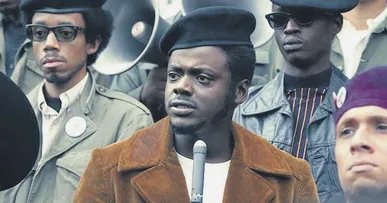
culture watch
Towards a post-racial UK

James Paul
George Bernard Shaw wrote: ‘You use a glass mirror to see your face; you use works of art to see your soul.’
These past weeks I have been pondering the way the films honoured at the recent Academy Awards reflect the soul of contemporary society. Nomadland (Best Picture, Best Actress and Best Director) explores the fallout of the 2008 economic crisis for a generation of ‘houseless’ Americans who are too old to find re-employment but too poor to retire. The Father (Best Actor and Best Adapted Screenplay) looks at the growing epidemic of dementia from within the mind of a sufferer. And Shaka King’s historical drama, Judas and the Black Messiah (Best Supporting Actor), although set during the late 1960s, brings us to reflect on the continuing fight against racial injustice as highlighted by the Black Lives Matter protests that followed the murder of George Floyd a year ago.

Talking about race
Date posted: 1 Jan 2021
Dear Editor,
I was saddened to see Paul Lusk’s letter
(en December 2020) and Duncan Forbes’
article (en October 2020) promoting the
book We Need to Talk About Race (SPCK
2019) by Ben Lindsay. While his title is not
wrong, the content of this book is partisan
and less than Biblical.
Flags, fear and the question of identity
I walked to a birthday dinner through the streets of London on Saturday 13 September, and remembered that I am mortal.
This was the day that a rally, organised by anti-immigrant activist Tommy Robinson, saw up to 150,000 people march through central London. Held under the name “Unite the Kingdom," Robinson promoted it as a free speech event.